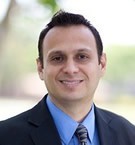Formal education at educational institutions has become in many ways the most popular understood form of education that in general we have the tendency to equate our ability to learn with our GPA or success at school. In this way, if adults earned good grades at educational institutions, it is assumed they “know” how to learn because they were good students. For this reason, this kind of people perceive favorably words like “Bible study” or “Sunday school” and usually they like to be involved in them.
Furthermore, if adults had bad experiences during their school years, if their grades were generally low or if they did not have the opportunity to formally study at academic institutions, it is assumed that their ability to learn is weak. For this kind of people the terms “Bible study” or “Sunday school” have a negative connotation and usually they try to avoid them or minimize their participation at these gatherings.
For this reason, one can rather easily perceive the great difference between the levels of interest that adults have for the church educational activities. In one occasion I participated on a construction mission trip where I was able to observe the radical change in the behavior of several men from my former Sunday school class. I, obviously, enjoyed the Bible lesson and had a hard time working during the trip since I am not handyman at all. However, most of these adult men never participated in Sunday school and even though they were kind and attended the lesson every week, their nonverbal communication clearly expressed that sitting in a class was not very attractive to them. During that short trip, I saw how they talked to each other with excitement, they enjoyed using and sharing their tools, and they enthusiastically exchanged ideas about how to better complete their project. I do not think that the radical difference in their attitude was related to their level of spiritual life or Christian commitment. I think they just did not feel comfortable with the format we were using to “study” the Word of God.
A sense of competency is essential for adults' desire to learn since they need to connect who they are with what they learn. In a way, this adult need is especially important for men because of their desire of achieving significance and being successful, and consequently, their fear of failure. Adults who had good experiences during their school years tend to look favorably to participate in Bible studies. Adults with negative experiences first need to realize they can actually learn. They need to disassociate their ability to learn the Bible from their involvement in formal education. Therefore, a primary role of a Bible teacher is to motivate their students to learn.
An important educational theory affirms that every person is capable of learning anything under two simple conditions: enough time and proper coaching or direction. God revealed Himself through His Word so we can know Him and grow in our relationship with Him. We all can study and learn from the Bible. In order to do it, we all can benefit from the guidance and instruction of someone more knowledgeable. In fact, I believe one of the primary purposes of Sunday school and Bible studies is to help people to study the Bible by themselves. When Bible teachers focus mainly in sharing information, regardless of how important it might be, instead of helping believers to mature in the faith, they actually prevent their growth. God desires to communicate with all of us so we can grow in the knowledge and grace of our Lord Jesus Christ. Everybody can learn! But each one of us can identify with the words of the Ethiopian man in Acts 8:31 “How can I, unless someone explains it to me?” And I will add “and takes the time (like Phillip) to teach me and helps me discover God’s truths by myself and along the community of believers.”
 Biola University
Biola University



